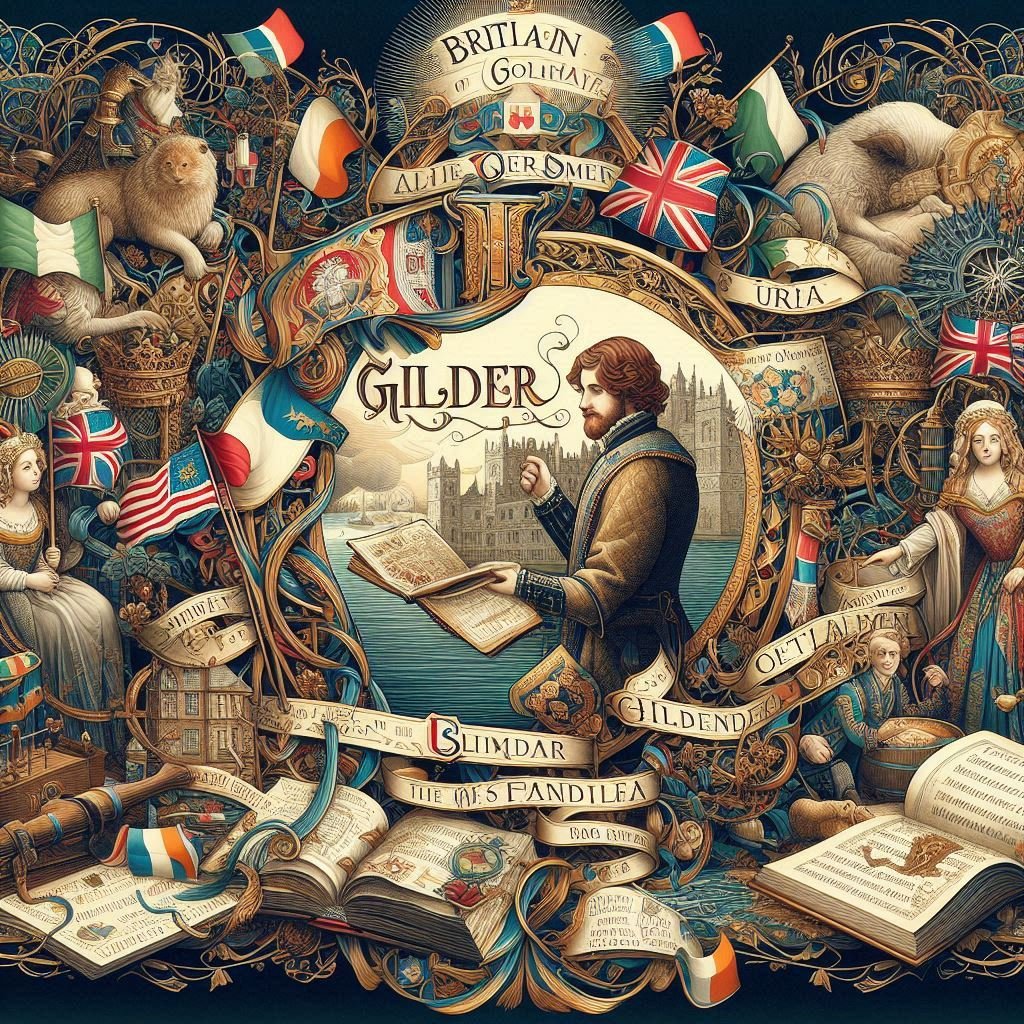Surnames are not merely words; they carry stories of lineage, migration, and cultural heritage. The journey of the Gidler surname from Britain to Ireland is one filled with historical significance and personal narratives. Let’s delve into the rich tapestry of Gidle history, exploring its origins, migration patterns, and modern-day significance.
The Origin of Surnames
Surnames, or family names, began to emerge around the 13th and 14th centuries in Europe, primarily as a means of distinguishing individuals within growing populations. They often reflected occupations, locations, or personal characteristics.
Understanding the Gidler Surname
The Gidler surname is believed to have originated from Britain, with variations like Gyddeler and Gydeler recorded in historical documents. Its etymology may be linked to occupations related to travel or trade.
Early Mentions of Gidler
Early mentions of the Gidler surname can be found in mediaeval records, indicating its presence in various regions of Britain.
Migration Patterns from Britain to Ireland
The movement of people between Britain and Ireland has a long history, shaped by economic, political, and social factors.
Factors Influencing Migration
Factors such as land disputes, religious persecution, and economic opportunities played pivotal roles in driving migration from Britain to Ireland.
The Benefits of openhouseperth.net Insurance: A Unique and Flexible Home Insurance Option
Tracing Gidler Roots in Britain
To understand the origins of the Gidler surname, we must explore the historical context of Britain, including its cultural and linguistic influences.
Historical Context
Britain’s complex history, marked by invasions, migrations, and cultural exchanges, provides insight into the development of surnames like Gidle.
Gidler in Ireland: A Historical Perspective
The arrival of Gidler families in Ireland brought forth a blending of cultures and traditions, contributing to the rich tapestry of Irish society.
Influence and Integration
Gidler families integrated into Irish communities, adopting local customs while preserving their distinct identity.
Modern-Day Gidler Families
Today, Gidler families are scattered across Ireland and beyond, forming tight-knit communities rooted in shared history and heritage.
Community and Identity
Gidler families maintain strong bonds, organising reunions and events to celebrate their shared ancestry.
Cultural Impact of the Gidler Surname
The Gidler surname has left its mark on language, traditions, and folklore, enriching the cultural landscape of both Britain and Ireland.
Language and Traditions
Words and phrases associated with the Gidler surname are woven into local dialects, serving as reminders of ancestral roots.
Challenges in Genealogical Research
Tracing Gidler genealogy poses certain challenges, including fragmented archival records and limited resources.
Archival Records and Resources
Genealogists rely on a combination of historical documents, church records, and DNA testing to piece together family histories.
Preserving Gidler Heritage
Efforts to preserve Girdle heritage are underway, with genealogical societies and online platforms offering resources and support.
Half of a 1990s-2000s rock duo with six grammys
Genealogical Societies and Resources
Organisations dedicated to Gidler genealogy provide valuable assistance to researchers, offering access to databases and expertise.
DNA Testing and Genetic Genealogy
Advancements in DNA testing have revolutionised genealogical research, allowing individuals to uncover familial connections and ancestral origins.
Unravelling Family Connections
DNA analysis provides insights into the migration patterns and familial relationships of Gidler descendants.
Stories and Anecdotes: Personalizing Gidler History
Behind every surname lies a treasure trove of stories and anecdotes, passed down through generations, enriching the tapestry of family history.
Family Legends and Tales
From adventurous ancestors to tales of resilience, Gidler families cherish the stories that bind them together across generations.
Gidler Coat of Arms and Symbolism
The Gidler coat of arms symbolises pride, heritage, and familial bonds, serving as a visual representation of the Girdle lineage.
Heraldic Meanings
Each element of the Girdle coat of arms carries symbolic significance, reflecting the values and aspirations of the family.
Global Distribution of the Gidler Surname
While rooted in Britain and Ireland, the Gidler surname has spread to various parts of the world, carried by migration and settlement.
Diaspora and Settlements
Gidler descendants can be found in diverse regions, contributing to the cultural mosaic of their adopted homelands.
Conclusion
The journey of the Gidler surname from Britain to Ireland is a testament to the enduring legacy of family ties and cultural heritage. Through the exploration of historical records, personal narratives, and genetic research, we gain a deeper understanding of the complexities of Gender history and its global impact.
FAQs
Are all Gidler families related?
No, while many Gidler families share a common ancestry, surname variations and historical migrations have led to distinct family branches.
Can I trace my Girdle ancestry online?
Yes, there are several online resources and genealogical databases that can aid in tracing Girdle family history, including surname-specific forums and DNA testing services.
What does the Girdle coat of arms symbolise?
The symbols and colours on the Girdle coat of arms often represent values such as strength, honour, and familial unity, passed down through generations.
How common is the Gidle surname today?
The prevalence of the Gidle surname varies depending on geographic region and historical migration patterns, but it remains relatively uncommon compared to more widespread surnames.
Are there any famous individuals with the Gidle surname?
While the Gidle surname may not be widely recognized in popular culture, there are likely individuals with notable achievements or contributions who bear the name.


COMMENTS